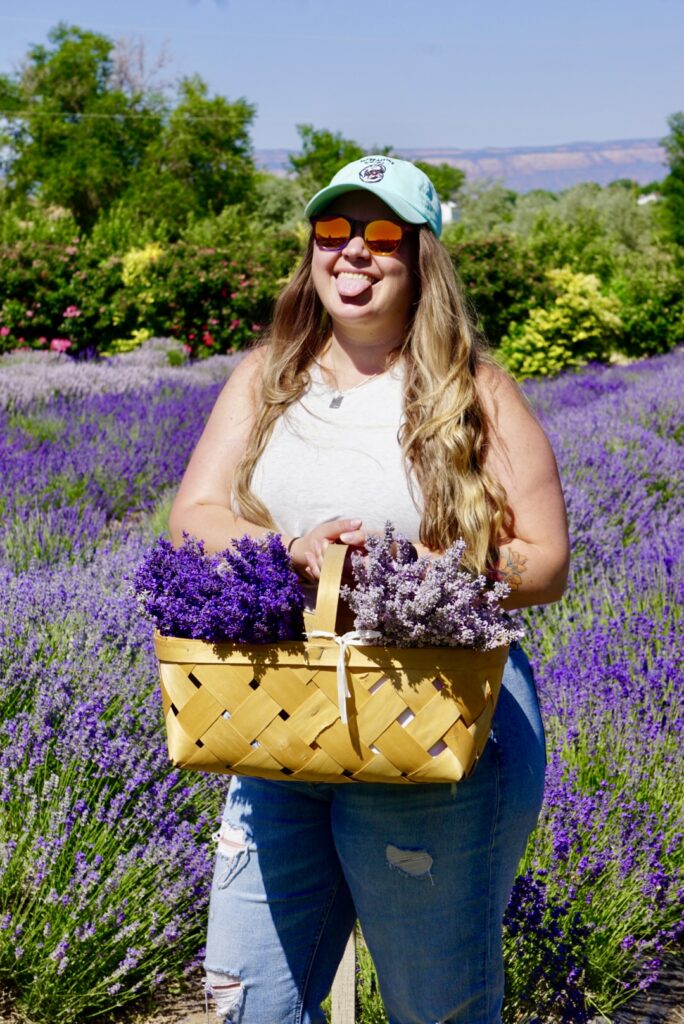Peace Corps China may be ending, and obviously, I’m not happy about it. But if there is is one thing about that experience that can’t be taken from me, its everything I learned about living and traveling in China.
There is no doubt the Peace Corps does at least one thing when you are in it; it makes you love and appreciate the country you’re in more. Often times, I have noticed ex-pats acting much differently than your average volunteer, as if they are more entitled than anyone else to live in China. With volunteers, we are encouraged to be so much more than just a foreigner visiting China.
True Integration
One of our biggest encouragements as a Peace Corps China volunteers is deeply becoming part of the culture. I remember pre-service training so vividly in that way. How the Peace Corps staff nothing short of scared us into thinking if we never said ‘yes’ when offered food, we would be offending anyone we met in China. Obviously this is a truth, to an extent, but most of the time, host country nationals won’t be that forceful with you if you really don’t want to try something.
In hindsight, I’ve come to understand how instilling that fear helped me, all of us, in the end. It helped for a few reasons:
- It got us more willing to try the local cuisine and see what we liked or didn’t like
- Forces us to understand the importance of giving and receiving
- Gives you a chance to try things at least once, even if it’s weird
The beauty of true integration is that you are spending more time out in small noodle shops than in your nearest McDonalds or KFC. The other beautiful part about it is you’re more living like a local and less like a tourist. Living in China again, I find it easy to fall into the culture as if I am a native myself.
Forced Innovation in the Kitchen
As volunteers, we don’t have a huge budget, nor are we super close to cherished home-country items like brown gravy in a can, taco sauce, taco seasoning, and whatever else foreigners crave when they’re away from home. And I’m talking things you wouldn’t make, but would rather buy packaged.
But if you want something badly, by golly you will make it. Some of the things my friends and I have made in desperation to get a taste of home:
- Homemade ricotta cheese (milk, salt, and lemon – literally, that’s it)
- Homemade ravioli (using homemade ricotta cheese and dumpling wrappers)
- Flour tortillas (salt, flour, and water)
- Wine (makeshift your water distiller – Peace Corps Staff does not recommend this)
- Yogurt (because you can’t find plain greek yogurt in China – also doubles as sour cream)
When you learn how to make this stuff on your own, not only do you feel super smart and capable, you also realize that you could make this at home in real life and it’s easier than you thought it might be.
Comfort in Minimalism
I will say, that the number of things I had when I lived in China was very little. I basically had clothes, a few precious items close to me, and then kitchen items. When I got back to America, the first thing I did was buy a bunch of ‘stuff’. It was absolute madness how quickly I accumulated so much stuff.
It was impossible to hang anything on a wall in my apartment because it was cement, plaster, and paint. So it made sense to just live in a minimalist home and the only pictures on my walls were the big open windows that looked out into the trees and tennis courts near my complex. The mentality of, “I’m only here for two years” also keeps you from purchasing a lot of unnecessary items.
What I learned with this is how to live more simply and without the “stuff”. When you do that, you actually feel much lighter and happier. It’s sort of like the concept of hygge, or rather Marie Kondo like.
Comfort in Living Alone
I will say if you don’t like living alone and aren’t comfortable being by yourself. You will likely get comfortable really fast. But that may not be the worst thing. Learning to live with yourself is perhaps one of the greatest things you could ever do.
I wasn’t always comfortable being by myself. I think it was because I didn’t like myself very much before. Living by myself forced me to sort of look at the things I didn’t like about myself. If I recognized this thing I didn’t like existed in me, I had the choice to either keep it, or get rid of it. It was a truly beautiful transformation for me. Now, I’m comfortable being on my own, perhaps a little too uncomfortable at times.
You can learn about yourself, feel comfortable in your own skin, validate your own existence and all without the approval of others around you. That’s not to say you won’t have friends you can hang out with when you need to. But even traveling by yourself can become a beautiful experience!
Learning to Listen
Nothing beats sitting around a table of 20 Chinese people who are speaking their mother tongue. Meanwhile, you’ve only been learning Chinese for six months and have no clue what people are saying. This is a great time to try all the food, by the way.
Sometimes, we talk too much in conversations. Sometimes we like the sound of our own voice too much. Sometimes, we have too much of an opinion. The great thing about living in China or any country where you can’t speak the language is kind of great in that way. It forces you to shut up and listen for once. At times, I would just sit in my office and listen to my colleagues speak in Chongqing dialect. I would listen for speech patterns and exercise my brain to see if I could understand what they were saying.
One of my favorite things my dad said to me when I came home after two years in Peace Corps was, “Kelly, you’re so quiet. It’s disarming.” I had just learned to listen more and not be the loudest in the room.
The Important of Language For Learning Culture
Language is so crucial and important for learning about the culture of the place you live in, especially Peace Corps China.
What I mean by this is, we gain knowledge of mannerisms, ways of speaking, slang, and cultural references through speech. So if we can’t learn a language, imagine what a huge language barrier that is for us in addition to the more obvious language barrier (the language we don’t learn).
Learning language was important for understanding my friends and their ways of speaking, it was important for reading food menus so I could try new tastes, and it was used to communicate myself so my friends could understand me better. Learning Mandarin Chinese made every aspect of living in China much easier and more enjoyable for me as a temporary resident.
And at the peak of my language learning, I got to see a traditional Chinese New Year and understand the traditions better than I ever would have if I had just read about them in a book. Plus, I got to see how meaningful these traditions are to people.
Being Patient and Humble
You don’t spend much time in China before you realize just how small your existence in the world truly is. When you come from a country so often regarded as the “best country in the world”, you realize what bullshit that is. You realize there is a lot of greatnesses, but many imperfections too. You realize there is no one way to live in the world. Most of us don’t know that because we’ve never seen it. I was truly humbled by China and how different it was from everything I knew.
Peace Corps China was also a place that helped me slow down a bit. From hang-drying my clothes to walking everywhere to taking fast trains instead of airplanes. Everything in my life required a little more time and a little more patience on my part. I came from a place where we are always in a hurry, walking fast (practically running), and multitasking beyond belief. Here, I could slow down and take the world in a little more.
Not only are you more patient with life, but you’re also patient with yourself as you learn a language, as you grow up, as you evolve into a better person.
‘Please’ and ‘Thank You’
I know it’s drilled into us at young ages, but we really do say ‘please’ and ‘thank you’ a lot. It’s so habitual and ingrained, sometimes it’s really hard to stop. It’s sort of similar to when you add ‘like’ or ‘um’ in every gap in your speech.
On more than one occasion, my sister has told me, “there is no need to say thank you so much”. She truly means it. In her mind, you should be doing things to show you care, always. In their mind, it doesn’t always necessarily warrant a ‘thank you’. They know that you are thankful for their kindness and help. Maybe they’re just modest in that way.
But when you say ‘you’re welcome’ in response to a thank you, the direct translation is literally, ‘don’t be so polite’.
I’m surprised by how often I don’t hear the use of ‘please’ and ‘thank you’ in sentences when I speak to locals. But that’s how it is.
Adapting to the Environment
If you let yourself, you can easily adapt to where you are living and almost become a part of the norm. I loved Peace Corps China for that. It gave me the opportunity to be a different person, or rather a person I had always wanted to be, but never took to opportunity to focus on.
When I say I adapted to my environment, I ate less, walked more, spoke the mother tongue, put food in my neighbor’s bowl at the dinner table, took the time to learn local cuisines, and lost weight (which helped me fit in more because the population is so slim). In a way, I was trying to be as Chinese as I could.
As a result, I fell in love with China, and often refer to the country as my second home. If I could ever be offered dual citizenship, I would do it in a heartbeat. Truly.
Peace Corps China ending is a tragedy. Many of us are heartbroken and devastated that the beautiful work we’ve done is being dismissed and most likely, forever forgotten. Because of Peace Corps China, I love the country of China, and that will not change anytime soon.
Watch the Video!
See my experience in China as a Peace Corps Volunteer.










